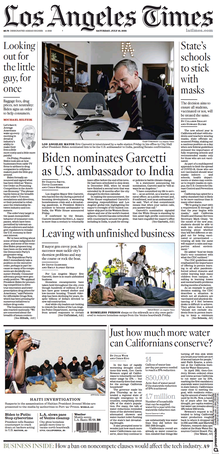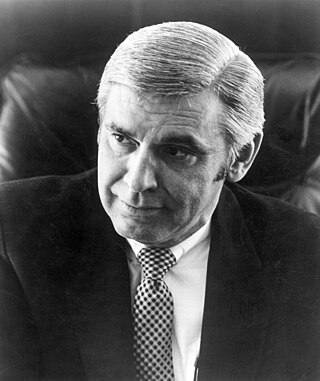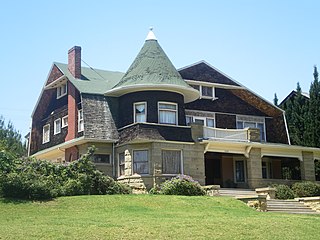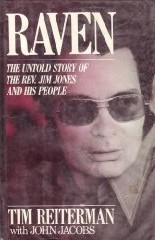Related Research Articles

The Peoples Temple of the Disciples of Christ, originally Peoples Temple Full Gospel Church and commonly shortened to Peoples Temple, was an American new religious organization which existed between 1954 and 1978 and was affiliated with the Christian Church. Founded by Jim Jones in Indianapolis, Indiana, the Peoples Temple spread a message that combined elements of Christianity with communist and socialist ideology, with an emphasis on racial equality. After Jones moved the group to California in the 1960s and established several locations throughout the state, including its headquarters in San Francisco, the Temple forged ties with many left-wing political figures and claimed to have 20,000 members.

The Peoples Temple Agricultural Project, better known by its informal name "Jonestown", was a remote settlement in Guyana established by the Peoples Temple, an American cult under the leadership of Jim Jones. Jonestown became internationally infamous when, on November 18, 1978, a total of 918 people died at the settlement, at the nearby airstrip in Port Kaituma, and at a Temple-run building in Georgetown, Guyana's capital city. The name of the settlement became synonymous with the incidents at those locations.

James Warren Jones was an American cult leader and mass murderer who founded and led the Peoples Temple between 1955 and 1978. In what Jones termed "revolutionary suicide", Jones and the members of his inner circle planned and orchestrated a mass murder-suicide in his remote jungle commune at Jonestown, Guyana, on November 18, 1978. Jones and the events that occurred at Jonestown have had a defining influence on society's perception of cults.

The Los Angeles Times is a daily newspaper that began publishing in Los Angeles, California, in 1881. Based in the Greater Los Angeles area city of El Segundo since 2018, it is the sixth-largest newspaper in the nation and the largest in the Western United States with a print circulation of 118,760. It has 500,000 online subscribers, the fifth-largest among U.S. newspapers. Owned by Patrick Soon-Shiong and published by California Times, the paper has won over 40 Pulitzer Prizes since its founding.
Vanity Fair is an American monthly magazine of popular culture, fashion, and current affairs published by Condé Nast in the United States.

Leo Joseph Ryan Jr. was an American teacher and politician. A member of the Democratic Party, he served as the U.S. representative from California's 11th congressional district from 1973 until his assassination hours before the Jonestown massacre in 1978. Before that, he served in the California State Assembly, representing the state's 27th district.

George Richard Moscone was an attorney and Democratic politician who was the 37th mayor of San Francisco, California from January 1976 until his assassination in November 1978. He was known as "The People's Mayor", who opened up City Hall and its commissions to reflect the diversity of San Francisco, appointing African Americans, Asian Americans, and gay people. Moscone served in the California State Senate from 1967 until becoming mayor; in the Senate he served as majority leader. He is remembered for being an advocate of civil progressivism.
Don Harris was an NBC News correspondent who was killed after departing Jonestown, an agricultural commune owned by the Peoples Temple in Guyana. On November 18, 1978, he and four others were killed by gunfire by Temple members at a nearby airstrip in Port Kaituma, Guyana. Their murders preceded the death of 909 Temple members in Jonestown and four Temple members in Georgetown, Guyana.
Clay Schuette Felker was an American magazine editor and journalist who co-founded New York magazine in 1968 and California magazine in 1976. He was known for bringing numerous journalists into the profession. The New York Times wrote in 1995, "Few journalists have left a more enduring imprint on late 20th-century journalism—an imprint that was unabashedly mimicked even as it was being mocked—than Clay Felker."
Working People's Vanguard Party (WPVP) was a small, Maoist political party in Guyana. It was formed in 1969 through a split in the People's Progressive Party (PPP) in the 1960s. The party was led by Brindley Benn and Victor Downer. Initially the party advocated a violent overthrow of the People's National Congress government, but later shifted to the right and entered into an alliance with pro-capitalist groups.
Donald Freed is an American playwright, novelist, screenwriter, historian, teacher and activist. According to Freed's friend and colleague, the late Nobel Laureate Harold Pinter, "(Freed) is a writer of blazing imagination, courage and insight. His work is a unique and fearless marriage of politics and art."

Charles R. Garry was an American civil rights attorney who represented a number of high-profile clients in political cases during the 1960s and 1970s, including Huey P. Newton during his 1968 capital murder trial and the Peoples Temple during the 1978 Jonestown tragedy.

Alvarado Terrace Historic District is a designated historic district in the Pico-Union district of Los Angeles, California. It is located southwest of Downtown Los Angeles, along Alvarado Terrace between Pico Boulevard and Alvarado Street.

Raven: The Untold Story of the Rev. Jim Jones and His People details the life and ultimate demise of Jim Jones and the Peoples Temple. Written by journalist Tim Reiterman, the book reviews the history of the Peoples Temple. The book includes numerous interviews, audio tapes and documents among its hundreds of sources.
Timothy Oliver Stoen is an American attorney best known for his central role as a member of the Peoples Temple, and as an opponent of the group during a multi-year custody battle over his six-year-old son, John. The custody battle triggered a chain of events which led to U.S. Representative Leo Ryan's investigation into the Temple's remote settlement of Jonestown in northern Guyana, which became internationally notorious in 1978 after 918 people – including Stoen's son – died in the settlement and on a nearby airstrip. Stoen continued to work as a deputy district attorney in Mendocino County, California, where he was assigned to the District Attorney's Fort Bragg office. Stoen later joined the Mendocino County Public Defenders. He is now in the private practice of law.

The Peoples Temple, the new religious movement which came to be known for the mass killings at Jonestown, was headquartered in San Francisco, California, United States from the early to mid-1970s until the Temple's move to Guyana in 1977. During this period, the Temple and its founder, Reverend Jim Jones, rose to national prominence thanks to Jones' interest in social and political causes, and wielded a significant amount of influence in San Francisco's city government.
Marshall Kilduff is a retired journalist, having written for the San Francisco Chronicle since 1971. On January 17, 2021, he announced his retirement in his regular column.
"Drinking the Kool-Aid" is strongly believing in and accepting a deadly, deranged, or foolish ideology or concept based only upon the overpowering coaxing of another; the expression is also used to refer to a person who wrongly has faith in a possibly doomed or dangerous idea because of perceived potential high rewards. The phrase typically carries a negative connotation. It can also be used ironically or humorously to refer to accepting an idea or changing a preference due to popularity, peer pressure, or persuasion. In recent years, it has evolved further to mean extreme dedication to a cause or purpose, so extreme that one would "drink the Kool-Aid" and die for the cause.
Carolyn Louise Moore Layton was a leadership figure within Peoples Temple and a long-term partner of Temple leader Jim Jones. Along with other inner circle members, she assisted in the planning of the mass murder that took place in Jonestown, Guyana on November 18, 1978. She was the mother of a child by Jones, Jim Jon "Kimo" Prokes.
Jim Jones was a cult leader who on November 18, 1978, orchestrated the mass murder suicide of 909 members of his commune in Jonestown, Guyana. Since the events of the Jonestown Massacre, a massive amount of literature and study has been produced on the subject. Numerous documentaries, films, books, poetry, music and art have covered or been inspired by the events of Jonestown. Jim Jones and the events at Jonestown has had a defining influence on society's perception of cults. The widely known expression "Drinking the Kool-Aid" originated in the events at Jonestown, although the specific beverage used at the massacre was Flavor Aid rather than Kool-Aid.
References
- 1 2 3 Citron, Alan (30 July 1991). "California, 2 other magazines folding (part 2)". Los Angeles Times.
- ↑ Lindsey, Robert (17 April 1976). "'New West' Is Out - Looking like 'New York'". The New York Times. Retrieved 19 May 2023.
- 1 2 Wallace, Baine (11 October 1991). "The death of a California magazine". Santa Cruz Sentinel.
- ↑ Krause, Charles; Layton, Deborah. Introduction – Seductive Poison: A Jonestown Survivor's Story of Life and Death in the Peoples Temple. Anchor Books. p. 133.
- ↑ Kilduff, Marshall and Phil Tracy."Inside Peoples Temple." Archived December 17, 2010, at the Wayback Machine Alternative Considerations of Jonestown and Peoples Temple. Jonestown Project: San Diego State University. August 1, 1977.
- ↑ Davidson, Steven (24 May 2017). "The Secret Jewish History Of 'Top Gun'". The Forward.
- 1 2 Citron, Alan (30 July 1991). "California, 2 other magazines folding (part 1)". Los Angeles Times.